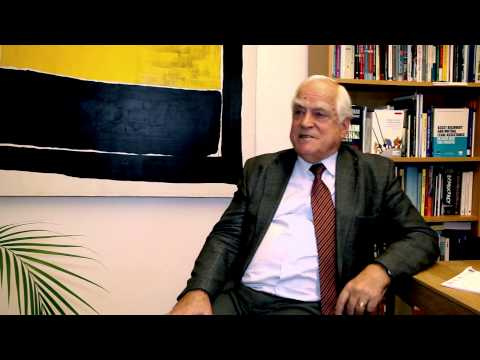Why was the Extractive Industries Transparency Initiative set up with a relatively narrow focus on the flow of money? - Interview with Peter Eigen - Part III
The governance challenges of natural resource extraction are enormous. What can be done to improve natural resource governance? ECC’s Stephan Wolters talked to Peter Eigen, Founder of Transparency International and Chair of the Extractive Industries Transparency Initiative (EITI) from 2006-11. As a leading expert on the challenges of corruption, he provides exciting insights and evaluates success and failure of various approaches, including EITI.
"I was convinced that we had to be very modest in our mandate, because we had very different interests in our board. We looked only at the flow of funds. We did not dare to say anything about the fairness of particular investment agreements, the adequacy of the flow of funds, the question of whether a particular mining venture served only the interests of the investor, only the people or only the cleptocrats in the country. We did not form any opinions about it. We only said: in that country, in that year, so much money was paid to the government. That in itself became so important that a lot of other interesting issues were discussed in that context.
Some of the companies were extremely grateful for having the opportunity to enter into a dialogue with civil society and with the local population affected as a result of this multi-stakeholder conversation. I was very happy that we managed to put in place this relatively technocratic, relatively modest piece of work."
Please find the Video Series Overview here.
Further resources:
The EU proposes to regulate conflict minerals i.a. through voluntary disclosure standards for extractive and logging industries - while the Dodd-Frank Act in the U.S. already specifies binding standards. Read our assessment of the proposal.
In March 2013, the US became a candidate country of EITI, being the first G7 state to join the initiative.










